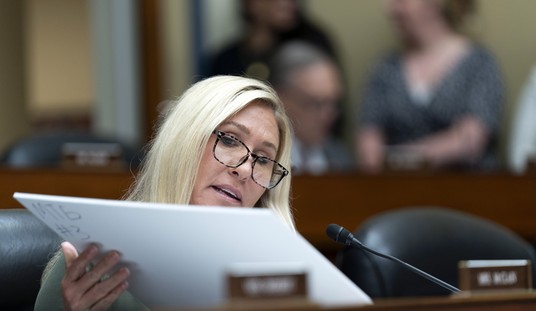Only an anecdotal report (from a Democrat, no less), but if that rate holds true, it’d mean almost 2,000 votes knocked off her presumptive lead. Not an insignificant amount.
Here’s the important part, though:
Chip Thoma, observing for the Alaska Democratic Party, tells me that around 98 percent of the write-in ballots cast appear to be for Lisa Murkowski. Roughly 10 percent of those are being challenged by the Miller campaign on spelling grounds.
But Thoma said the Division of Elections is overruling 90 percent of those challenges. The Miller campaign than re-challenges. Those ballots will get another review, with the final say going to the certification board (or the courts.)
Thoma said he was struck by the large percentage of write-ins that were perfectly cast for Murkowski, with the oval filled in and her first and last names spelled correctly.
Murky’s presumptive lead at the moment is a little more than 11,000 votes with 90,000 or so write-in ballots to be counted. If (a) she loses a few thousand due to two percent of write-ins being for other candidates and (b) Miller picks up another thousand or two thousand votes from the rest of the absentees that have yet to be counted, then yeah, the election might very well turn on how the courts deal with those 10 percent of write-ins for Murkowski that Miller is challenging. What kind of challenges are we talking about here, you ask? Dude:
“Most of them are minor misspellings,” Thoma said.
He said the misspellings tend to be in the first syllable of Lisa Murkowski’s name. Some people wrote “Mercowski” or “Mircowski.”
The elections director has reportedly already ruled that ballots filled out for “Morcowski” won’t count, a decision being challenged by Team Murky. You’ve all already seen the story posted in Headlines last night, I take it, about Team Miller suing to disqualify each and every ballot that doesn’t have Murkowski’s name spelled absolutely correctly. The statute does seem to point Miller’s way on that, as Patterico explains: The law requires that the name be filled in “as it appears on the write-in declaration of candidacy” and that “there are no exceptions” to that rule. Which means, in theory, that all 10 percent of the ballots Miller’s challenging today are headed down the toilet.
But wait, what about the “voter intent” standard that’s virtually universally applied by courts in cases involving disputed ballots? Funny thing — that’s never been tested in a write-in case in Alaska:
On Friday, Ms. Fenumiai pointed to two previous Alaska cases in which ballots were counted for a candidate when voter intent was clear, even if the ballot wasn’t filled out correctly. Those cases didn’t involve write-in ballots, however…
Election officials have also said they wouldn’t count a vote for “Lisa” or “Lisa M.” in Ms. Murkowski’s favor. When asked to comment on that, Mr. McKeever said, “We have not gotten any indication from the Division of Elections about the standards they’re going to apply, but we expect that they’ll comply with Alaska law.”
Rick Hasen, an election-law expert at Loyola Law School, said states typically interpret election rules so they maximize the chances voter intent is considered. Alaska, in particular, “has generally taken the view that statutes should be liberally construed,” he said.
It’s hard to “liberally construe” a statute that says “no exceptions.” I think you’ll see one of two things happen here if this race really does come down to a stack of ballots marked “Markowski” or “Murkowsky” or whatever. One: The state supreme court could decide that the statute is unconstitutional because the right to vote implies some sort of “voter intent” standard. That’d be an awfully sketchy ruling given that the state constitution says voting standards shall be prescribed by law, but we’ve seen stranger interpretations before and, after all, courts don’t like to see people disenfranchised when everyone knows who they meant to vote for. Two: In theory, the legislature could act here to amend the statute and add a “voter intent” standard to the provision cited by Patterico. I’ll leave it to con law experts to argue whether that would in itself be unconstitutional as an ex post facto law, but the political maneuvering would be fascinating. Democratic legislators might push for it just to put Sean Parnell, the Republican governor, and other GOP legislators on the spot. It’d be awfully hard, I think, to explain to the public — 60 percent of whom didn’t vote for Joe Miller — that a Senate race should turn on whether someone spelled “Murkowski” with an “e” instead of a “u.” Fun times ahead!







Join the conversation as a VIP Member